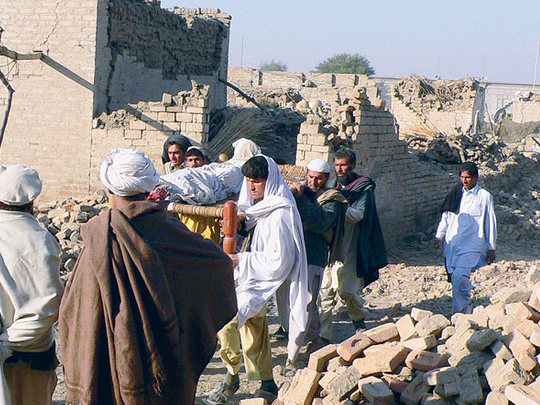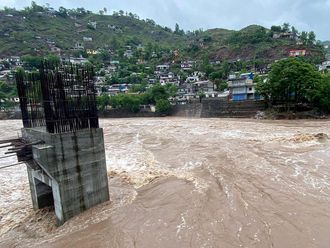
Lakki Marwat: Volleyball might seem an odd sport of choice in Lakki Marwat, a scrubby district of bearded rifle-wielding tribesmen on the border between Pakistan's ‘settled' areas and its lawless tribal belt.
But it makes perfect sense. Volleyball requires little equipment or land, which suits the poverty-stricken players, and games can be played in small courtyards ringed by mud-walled farmhouses, ideal in a tribal society where blood feuds are common.
Unfortunately that also makes it a perfect target for a Taliban massacre.
On January 1, a suicide bomber rammed his truck into a crowd watching a volleyball game in Shah Hassan Khel, a village on the edge of Lakki Marwat. The blast caused one of the highest death tolls of recent years, 97 dead and 40 injured, or about half of those present.
"It was a very horrible scene," said Mohammad Ayoub, the local police chief who evacuated survivors by torchlight.
The atrocity was an act of vengeance: six months earlier the people of Shah Hassan Khel had ejected the Taliban from their village, turning 24 militants over to the army.
But revenge runs in both directions in this rough, tribal land. Now that the traditional 40 days of mourning are coming to an end, the villagers are striking back. Local elders have formed a "peace committee" that is stocking up on weapons and ammunition. Armed patrols have started in the village and surrounding hills. And the villagers have vowed to hunt down those responsible for the carnage and kill them.
"We will track them down. We will capture them, one by one. Then we will kill them, one by one," said Mushtaq Ahmad, an elderly farmer who heads the committee.
He cradled an AK-47 as he spoke in a closely guarded compound in the district capital, Lakki Marwat. Police have warned him that a second suicide bomber is on the loose, possibly targeting him.
The vengeance-driven backlash is not unique. Tribal militias, known as lashkars, are operating in other corners of North West Frontier province and the tribal belt in Swat, Buner and the Khyber agency. Some work well, others less so, but most analysts agree they can offer powerful resistance to the Taliban advance.
But the proliferation of such private militias, rooted in traditional Pashtun concepts of revenge, also highlight a more worrisome flaw: the failure of the weak Pakistani state to keep the extremists out in the first place.











